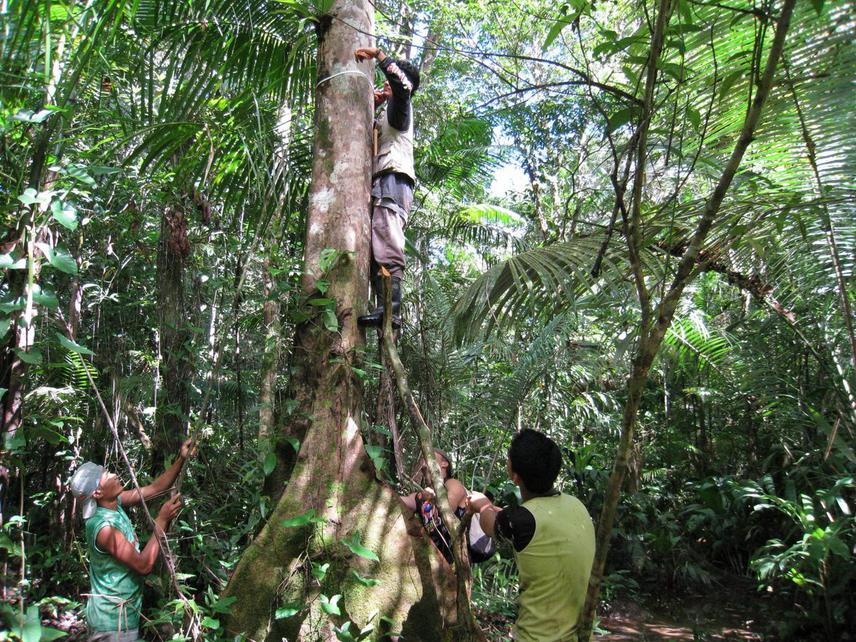Marina Londres
Other projects
28 Mar 2008
Ecology and Management of Andiroba (Carapa guianensis aubl.) in Tidal Floodplain Forests of the Amazon Estuary: Participatory Research of a Community-Identified Priority Timber and Non-Timber Tree Species
7 Jun 2012
Complexity of Forest-Based Livelihood Strategies and Factors Influencing Local Resource Use across Regions and Scales: Implications for Policy
The project aims to contribute to the sustainable management of tropical forests by local populations through participatory research on forest species ecology, capacity building program and research results dissemination.

Long term ecological studies of tropical forest species are critical for the accurate assessment of population parameters necessary to develop and implement sustainable management systems. Moreover, integration of local stakeholders in research projects is essential for the successful development and implementation of sustainable management models that will, ultimately, lead to conservation and human well-being improvements. However, the effective combination of good science with education and development efforts is a challenge that few initiatives have successfully confronted.
Our pilot collective learning experience catalysed a transformational shift towards more sustainable resource use locally, and helped community members negotiate more favourable terms of engagement with markets and political forces. Such empowerment allowed this one community to move closer to a sustainable forest-based livelihood system. This project will contribute to the understanding of sustainable management of tropical forests with and by local populations through participatory research on forest species ecology, community capacity building program and effective research results dissemination.
This process will facilitate joint development of sustainable and feasible management models and contribute to the overall goal of sustainable forest-based livelihoods and conservation of tropical forests. In contrast to top-down models, this approach can be replicated widely and generate positive impacts at regional scales.